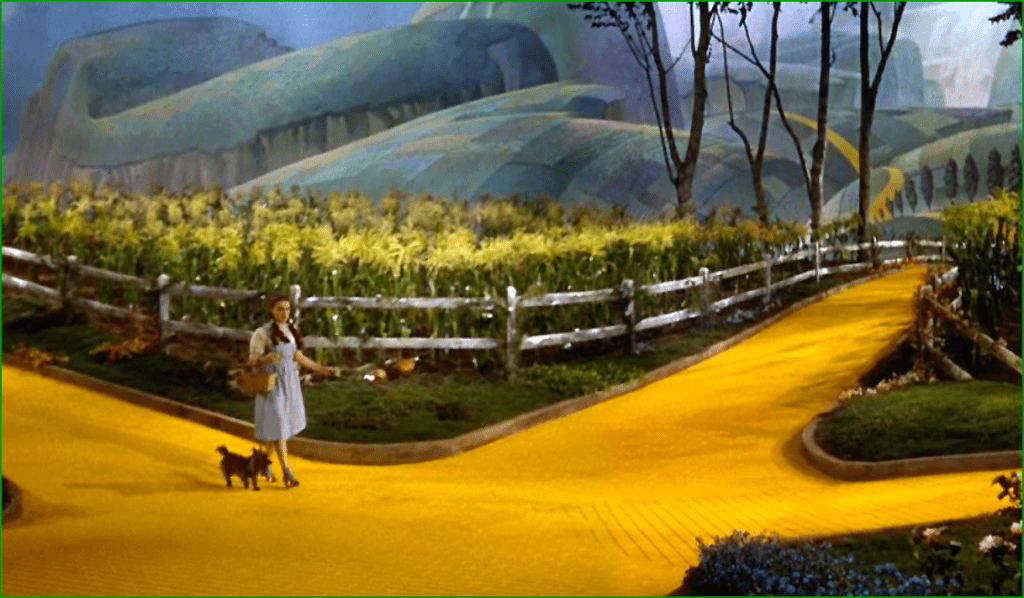
Fate or destiny – whatever you call it, is the idea that life is determined by powers beyond our control and has existed for centuries. It’s seen in the mythologies, stories, and religious beliefs of every culture in the world. But there are a few significant distinctions between fate and destiny. Knowing the difference will empower us to take control of our destinies no matter what fate has in store for us. Learn the main differences between fate and destiny and six steps to shape your destiny. (Estimated reading time: 11 minutes)
“It is not in the stars to hold our destiny but in ourselves.”
— William Shakespeare
The words “fate” and “destiny” get thrown around a lot. In modern usage, they are often used interchangeably. We hear people say things like, “Fate can be cruel,” “We were fated to meet,” “Be the master of your own destiny,” or “You are destined for greatness.”
In casual conversation, replacing one with the other makes no big difference. The words are similar, and there is some overlap. But ask a New Age thinker, and they will tell you that there are a few significant distinctions between the two forces.
On the other hand, Skeptics consider fate and destiny to be the same thing; a poetic way to describe the law of cause and effect — a New Age crutch people use to avoid taking responsibility for their lives. If a certain decision or action results in a bad outcome, they blame it on fate.
Whichever camp you fall into, it can serve you to know the potential impact of these unseen forces. Swiss psychologist Carl Jung believed that fateful, synchronistic events were not due to random chance or Higher Forces but a product of one’s perception.
We can see a great example of how fate and destiny can alter the course of our lives in the movie “Serendipity.” The onscreen couple, played by John Cusack and Kate Beckinsale, have a chance encounter while shopping.
After taking a walk together, Beckinsale’s character insists that they leave their fate to destiny, and uses a $5 bill and a book as their sign. After five years, Cusack finds the book and the $5 bill, and fate leads them back together through a series of events.
Cusack’s character poignantly captures the essence of destiny when he says, “Life is not merely a series of meaningless accidents or coincidences, but rather, it’s a tapestry of events that culminate in an exquisite, sublime plan.”
To understand the nuances of fate and destiny, delving into spiritual symbolism and history is a better approach than getting hung up on semantics and esotericism. It will empower us to take control and favorably direct our lives, no matter what fate has in store for us.
The difference between fate and destiny

Fate and destiny both connote our future and fortune. The main difference is that fate is predetermined by the cosmos and unavoidable, whereas destiny is self-determined and based on our choices.
Exploring fate and destiny in-depth and how their prominence has evolved over the years will make it easier to understand their differences.
What is fate and its role in our lives?
Fate is a supernatural power that establishes a preordained path for an individual. Fate comes from the Latin word “fatum,” meaning “that which is spoken for.”
It’s based on the idea that there is a natural order in the universe that cannot be changed. It causes events that are unavoidable and inevitable. Fate has a negative connotation because it can make us feel powerless.
In ancient times, people’s actions and decisions were deeply entwined with religious beliefs. Based on ancient mythologies, gods, goddesses, and other deities had prime control over the fate of their devotees. They set a person’s fate in motion from birth. This belief keeps them going because they trust in a higher power.
The most well-known ancient literature that accepts fate is Roman and Greek mythology, Chinese mythology and religions, Islam, Christianity, Judaism, Hinduism, and Sikhism. In Greek and Roman mythology, the three sisters of fate, Clotho, Lachesis, and Atropos, decide the birth and events of a person’s life. The three fates would spin the thread of destiny around a spindle which represented an individual’s life.
Living life based on fate is not the best way to live because you’re abdicating your responsibility. Believing that a higher force will do all the work can imply that we don’t need to actively participate, and that fate will take care of everything.
For instance, if a person faces one challenge after another, they might resign themselves to fate and view obstacles as barriers that set their limits. If we want to push past these perceived limits, following the road of destiny is more conducive to progress.
What is destiny and its role in our lives?
Destiny refers to events that will happen in a person’s future based on their actions. It can be actively altered and shaped based on their character and capacities. Destiny is derived from the Latin word “destinare,” which means “that which has been firmly established.”
Unlike fate, destiny puts you in the driver’s seat. You are solely responsible for the outcome of your efforts. In other words, you reap what you sow. Traits such as patience, resilience, courage, and hard work can positively impact your destiny.
Author Gary Zukav refers to this power we have in his book “Seat of the Soul.” He writes:
“Your life is yours to live, no matter how you choose to live it. When you do not think about how you intend to live it, it lives you. When you occupy it, step into it consciously, you live it.”
Destiny is much more positive because we have the power to determine the course of our lives, instead of leaving it to a higher power. Whether or not it’s true, a belief in destiny can encourage us to enthusiastically pursue our dreams and cultivate a character that is admirable and inspiring to others.
We’ll be willing to go within – and consciously set off on a soul quest that brings out the best in us and supports our maturing mental, emotional, and spiritual levels.
In mythology and philosophy, there are many stories of heroes and warriors who challenged fate and fulfilled their destinies. During his reign of 20 years, the Roman emperor Marcus Aurelius faced war and disease, yet remained steady because of his firm belief in self-agency and the ability to control his inner world.
Aurelius is considered one of the most notable Stoic philosophers. In his book “Meditations,” he notes the importance of strength and grace in managing the ups and downs of life. His destiny was centered on becoming the most virtuous person to serve his people best.
We can take inspiration from the views of humanistic and stoic philosophers like Marcus Aurelius. For example, when we have good financial habits and work diligently and strategically in our professions, we put ourselves on a destined path toward financial security and financial freedom.
Who calls the shots: How much control do we have?

Fate and destiny are two sides of the same coin and play a role in our unfolding. Both are intertwined and work hand in hand in creating our destinies.
Video games are the perfect metaphor for understanding the differences between fate and destiny. The stages and characters we encounter are determined by fate, but how we play the game reveals how far we will go and who we become along the way. Do we build character, develop resilience, and take charge? Or do we get bitter, weaker, and disillusioned? Only we can make that choice.
If we come from a place of ego, which wants control and certainty, we might find this truth difficult to accept. However, it would be naïve to believe that unforeseen occurrences won’t ever happen. Accidents or even lucky breaks can happen anytime, and any place.
We want to balance a healthy respect for the unknowable hand of fate and our ability to direct the stream of life and create our destinies.
This lesson was visceral for me. When I was a teenager, my friends and I consulted an astrologer at a fair. He predicted some unpleasant trends in my life and said there was nothing I could do to change it because it was fated. This forecast disempowered me and hung above my head like a dark cloud for years.
As I got older and began to see results from my efforts and decisions, it became clear that his predictions had no bearing on what I was capable of. I rebuked everything he said, took matters into my own hands, and stayed true to my dreams. Destiny was mine to create.
Even if you don’t believe in fate or destiny, taking responsibility for your thoughts and actions is essential. Despite being tossed around by the cosmic tides, you can carve out your own path. But that requires you to make peace with your past, accept reality, and seize your power.
There are four factors to keep in mind when shaping your destiny:
- External conditions (the economy, world events, social trends)
- The influence of family, friends, and colleagues
- Self-discipline, personal efforts, and our mindset
- Chance and luck (and how you can influence them)
Having these factors in mind doesn’t mean you can control them. Neither does it mean that you should be intimidated by them. Just like the chess player who benefits from knowing the positions of all the pieces on the board, you can make better moves knowing where all the pieces lie both within and outside yourself.
Destined for greatness: six steps to shape our destinies

The idea that powers beyond our control determine life has existed for centuries. But now we know we have more control over our destinies than we realize.
Once you recognize your internal locus of control, you can adapt your thoughts and actions to align with your desires. As you consciously learn, grow, and evolve, you move closer to your destiny.
Here are six steps to shape your destiny:
1. Develop self-awareness
The first vital step to controlling your destiny is accepting where and who you are right now. You can only make progress by knowing your starting point. This requires a keen awareness of your thoughts and feelings. Cultivate practices like journaling, self-reflection, or speaking with a coach or therapist to stay in touch with your inner world and reality.
2. Get clear on your goals and vision for your life
Destiny looks different for everyone, and your destiny is yours to create. Ask yourself what you want most in your life – what goals, needs, and visions will make you feel like you’ve made the most of your time on Earth? What energizes you? Once you identify that, direct all your attention toward fulfilling that vision. But remember not to postpone your happiness until you get there. Find joy in the present moment and celebrate every milestone.
3. Identify your beliefs and how they affect you
Our beliefs set the coordinates of our lives. You can’t control other people or what happens to you, but you can manage your mind. Victor Frankl famously said, “Everything can be taken from a man but one thing: the last of the human freedoms—to choose one’s attitude in any given set of circumstances, to choose one’s own way.” To do that, you need to examine your beliefs and how they direct your actions and choices.
Limiting core beliefs such as “I am unworthy” or “I don’t deserve success” block us from fulfilling our destinies. Replace these beliefs with empowering ones that support you.
4. Develop discipline and take consistent action
As creatures of habit, it makes sense to design a lifestyle that keeps us on a steady pathway toward growth and progress. Creating structure ensures that we stay focused and prevent our energies being scattered in activities that ultimately bear no fruit and leave us to the whims of fate. Fortunately, self-discipline is a learned behavior that requires repetition and practice. Improved self-discipline makes it easier to follow routines and take consistent action toward our destinies.
5. Tackle limitations and get outside your comfort zone
What are the limitations holding you back from living your destiny? Are they mental, emotional, physical, financial, or other people? Get clear on your constraints and come up with solutions to overcome them, or find another way. Limitations are often internal – fear of failure, fear of the unknown, or fear of shame. But fulfilling our destinies requires that we get outside our comfort zones. Fear is a natural survival instinct, but it doesn’t always serve us. Getting comfortable with fear and not allowing it to control you is a must to reach your vision.
6. Build a team to support you
You don’t have to go it alone on the path to destiny. Ask other people for support and build a circle of experts, advisors, and friends who you can turn to for wisdom, advice, and knowledge. Stay away from critical and judgmental people who make you doubt yourself and belittle your dreams. We must be cautious of those who try to tell us how to live our lives and steer us on a path that isn’t aligned with what we want. Guard your personal space and ensure you only allow people in who can enhance your life with friendship and counsel.
The word destiny is a derivation of the word “destination.” Destiny can be a concrete or metaphorical place, depending on your preference. It can change and evolve throughout your lifetime. You are in ultimate control over your destiny as long as you stay true to your values and ideals, make the most of every moment, and enjoy the ride with its inevitable ups and downs.
All my best on your journey,
Seline

Question for you: What do you see as the most significant difference between fate and destiny? How do you think fate and destiny have shaped your life?
Did you like this post? Sign up below, and I’ll send you more awesome posts like this every week.

Thought provoking piece. Thank you for writing it.
You’re welcome, Steven!
You bring up some really interesting points here. I have always been kind of confused about the fate vs destiny thing and thought they were pretty much the same. Thank you for this well-thought-out piece. It was a joy to read and really gave me something to think about!
Enlightening ideas, Thanks for sharing .
You’re welcome, Amar. 🙂
So many ideas in this piece… and the idea of fate vs destiny is something I think many people ponder, even without realizing it!